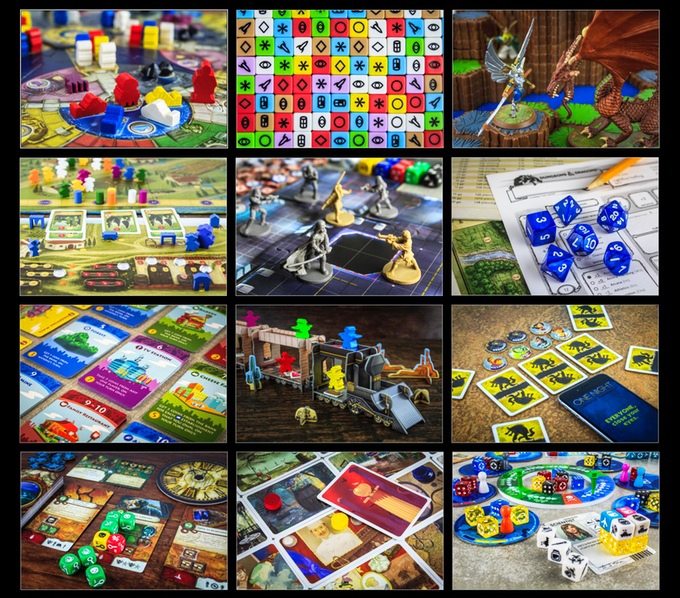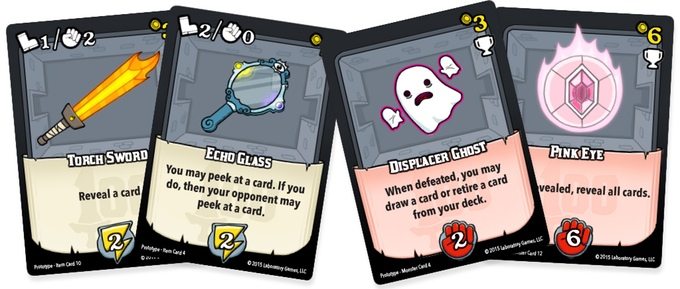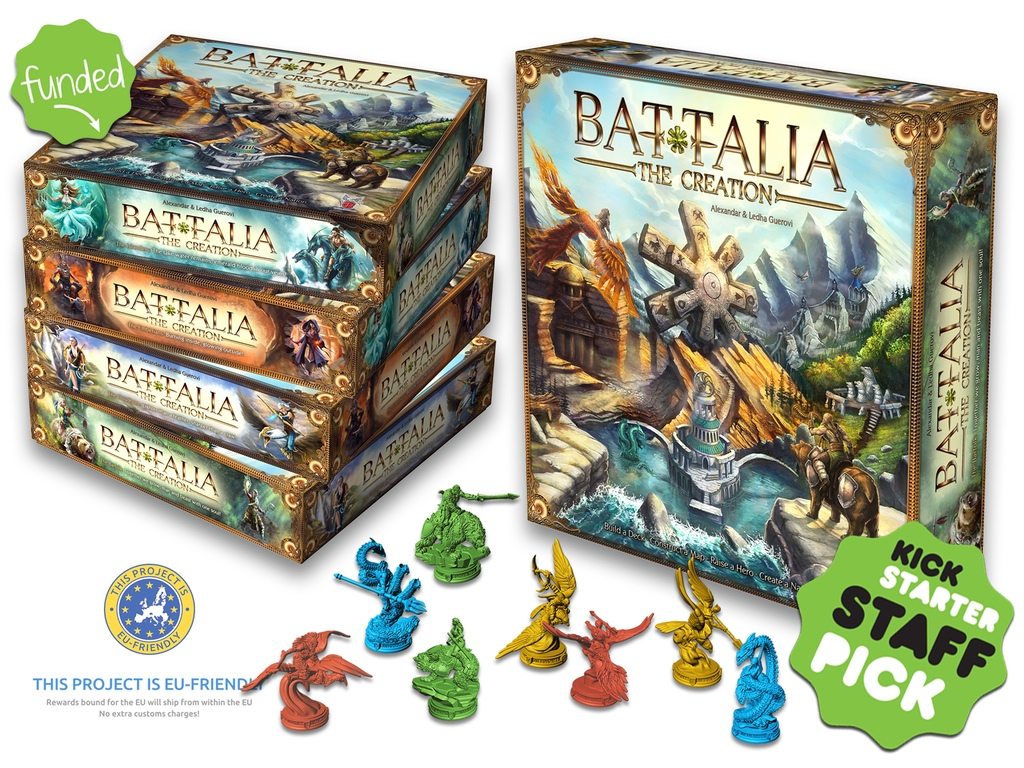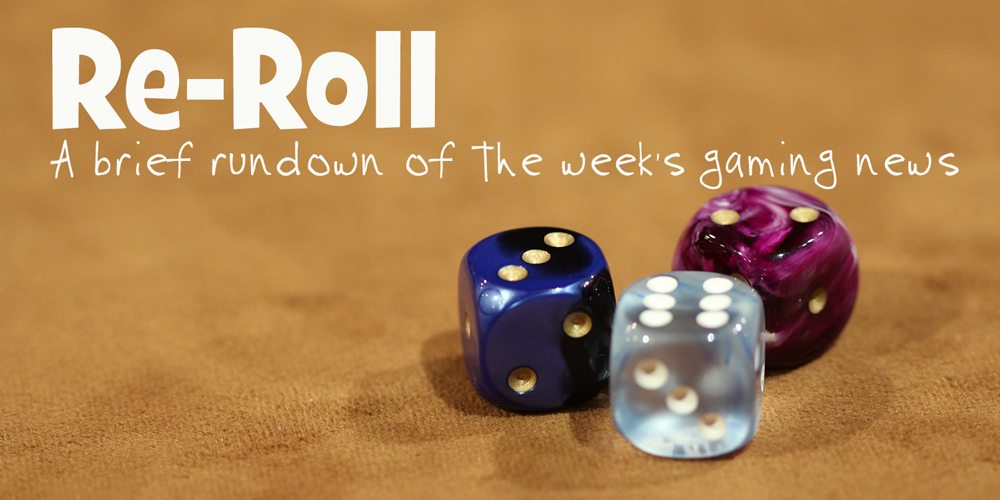I’m working my way through several Kickstarter board game prototypes for July and August, but there are always more projects out there that look interesting that I haven’t been able to give a full review. Here are a couple tabletop projects that caught my attention.
This one’s not actually a game in itself (though, hmm… wouldn’t it be interesting to have a calendary that’s also a game?)–it’s a calendar with gorgeous photos of games. Scott King has funded calendars for the past two years through Kickstarter and he’s back again. If you still use a paper calendar and you love games, this one comes with major holidays and some geeky holidays printed on it. If you want to pick which photos go into it, you can back for the “custom calendar” level and get a larger pool of photos to choose from.

Paradox: A Sci-Fi Puzzle Board Game
I actually did get a prototype of Paradox to try out last fall but then it fell off my radar until it popped up on Kickstarter recently. So, ironically, because I got it so early, I don’t have time now to give it a full review. (Time travel will do that to you.)

Paradox is a sci-fi game in which a timequake is creating havoc on fifteen different worlds. You use energy to repair a particular timeframe–past, present, or future–on these worlds, but that also makes the timequake move and potentially destroy worlds. The core mechanic involves a grid of disks that works a bit like a match-three app: you can swap disks if their symbols match, and then if you get enough of the same color in a row, you collect them as energy. (And then disks drop down and refill from a bag.) It’s a really interesting mechanic, but can feel a bit fiddly.

The other thing I really liked about the game is that each of the fifteen worlds is illustrated by a different artist, with three images showing the past, present, and future of the world. They’re all really fascinating, with their own stories behind them.
Laboratory has been making some great small games–its first game, Shift, was a “single card CCG” where two people battle using a single card each. The next was a two-player Eurogame, Province, a pretty fun game that fits in your pocket. The latest from Laboratory is 100 Swords, a deck-building dungeon crawl for two players that’s the size of a poker deck.
Cards are either items or monsters/obstacles, and your cards can be spent as movement (to move through the 5-card dungeon), attack (to defeat monsters), or energy (to purchase items found in the dungeon). The other trick is that the dungeon is face-down, so you have to explore to find out what cards are available to acquire.
It’s a quick-playing game that’s a cool way to introduce deck-building concepts, and it has a lot of humor in it. (Your starting cards include a bunch of Crappy Swords and an Awkward Sword.) There are two separate decks with different types of cards, available for a $14 pledge per deck. I’m wondering if it’s possible to combine the two decks to make a four-player version somehow…
Shadowrift is one of the first cooperative deck-building games I ever played, and I still like it (and should be getting my Kickstarter copy of the Archfiends expansion soon). But there were some issues with gameplay and especially the rulebook. Now it’s being revamped for a second edition, with better artwork and standardized card sizes–which will make it easier for producing future expansions, I’m sure. If you backed the first campaign, you can get a reduced price on the new edition.
I kept seeing this one pop up because other friends backed it or people I knew were tweeting about it. It combines miniatures, deck-building, tile-laying, and a calendar dial, with up to four players (maybe five if they hit the stretch goal) competing for dominance. I’ll admit I haven’t dug into the rules or anything yet, but it sounds pretty fascinating.








